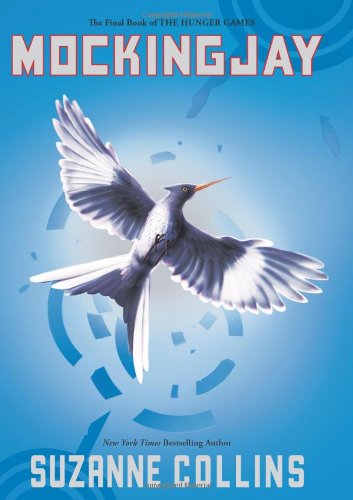All Nonfiction
- Bullying
- Books
- Academic
- Author Interviews
- Celebrity interviews
- College Articles
- College Essays
- Educator of the Year
- Heroes
- Interviews
- Memoir
- Personal Experience
- Sports
- Travel & Culture
All Opinions
- Bullying
- Current Events / Politics
- Discrimination
- Drugs / Alcohol / Smoking
- Entertainment / Celebrities
- Environment
- Love / Relationships
- Movies / Music / TV
- Pop Culture / Trends
- School / College
- Social Issues / Civics
- Spirituality / Religion
- Sports / Hobbies
All Hot Topics
- Bullying
- Community Service
- Environment
- Health
- Letters to the Editor
- Pride & Prejudice
- What Matters
- Back
Summer Guide
- Program Links
- Program Reviews
- Back
College Guide
- College Links
- College Reviews
- College Essays
- College Articles
- Back
Mockingjay by Suzanne Collins
Mockingjay is something to be excited about. Suzanne Collins brings us the final installment in The Hunger Games Trilogy. The conclusion of Catching Fire left us with a cliffhanger that was almost unbearable. Katniss Everdeen, the protagonist, is left in a state of anger and depression. But now Mockingjay gives us an ending.
Mockingjay is much different from the other two books. There is no Hunger Games, and thank god for that. Katniss finds herself in District Thirteen, a place not meant to exist, much like Katniss. Katniss begins in an apparent depression, which makes for a slow beginning, and that mood never truly leaves as the story develops. Whether that is a good or bad thing is up to the reader. Without spoiling the story, Katniss decides to defy the capitol and become the symbol of the rebellion.
The rebellion. This book is a lot more complex than it first appears. The rebellion was always looked at as a good thing from the first two books, at least, that’s what the narrative seems to make the reader believe. Katniss never likes it. The reasons are made clear in Mockingjay. The bloody and deadly atmosphere of war is explicitly portrayed by Collins, and the reader is a witness to the horrors of it all. What makes this a complex story is that as the story goes on, it’s hard to know where Katniss should stand. Surely not the Capitol, but the rebellion and its leader seem to not be the right people in charge. The use of Katniss as a pawn in their games causes her to go against them, defying the defy-ers, which naturally makes the story all the more confusing. Who’s good, who’s bad? Why is this all happening? Usually it’s clear, but Mockingjay says that there isn’t always right and wrong, but everyone has to take their own side. Katniss is forced into one last adventure, and when all seems like everything was pointless, tragedy hits and the exciting events are over for the most part.
When I first read Mockingjay, I was conflicted. Yes, there was a clear conclusion, but what was the point behind Katniss’s last adventure? And was there really a solution? What I had to realize that everything happened for the sake of happening. Every action that Katniss went through was realistically important or realistically futile, and this is the truth of war and life. The Hunger Games Trilogy isn’t about a country and its rebels, it’s about a teenage girl whom was thrown into it all as the symbol of something she never asked for. This story is about Katniss’s struggles, the wrongdoings against her and how she must deal with them. Katniss is just a teenager, and that’s the truth. She shows just how strong we can be, and just how adequately weak we should be allowed to be. She shows us that we have to keep true to ourselves, and not let others convince you that you’re something that you’re not.
Because is the truth is we’re just people like Katniss, thrown into life and expected to do more than is realistic.
Similar Articles
JOIN THE DISCUSSION
This article has 0 comments.

